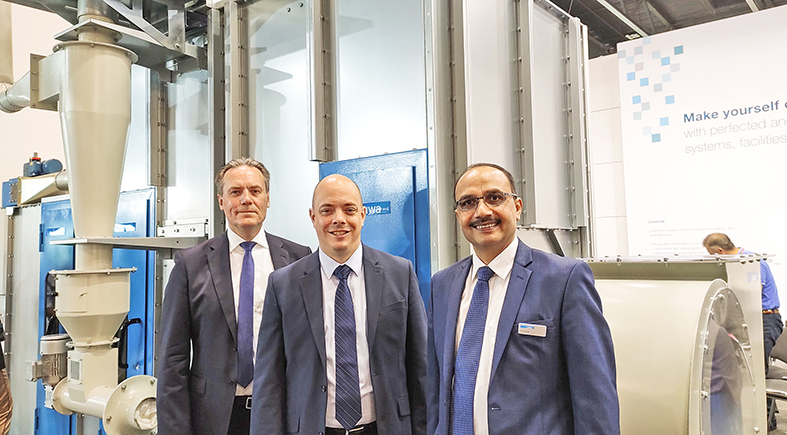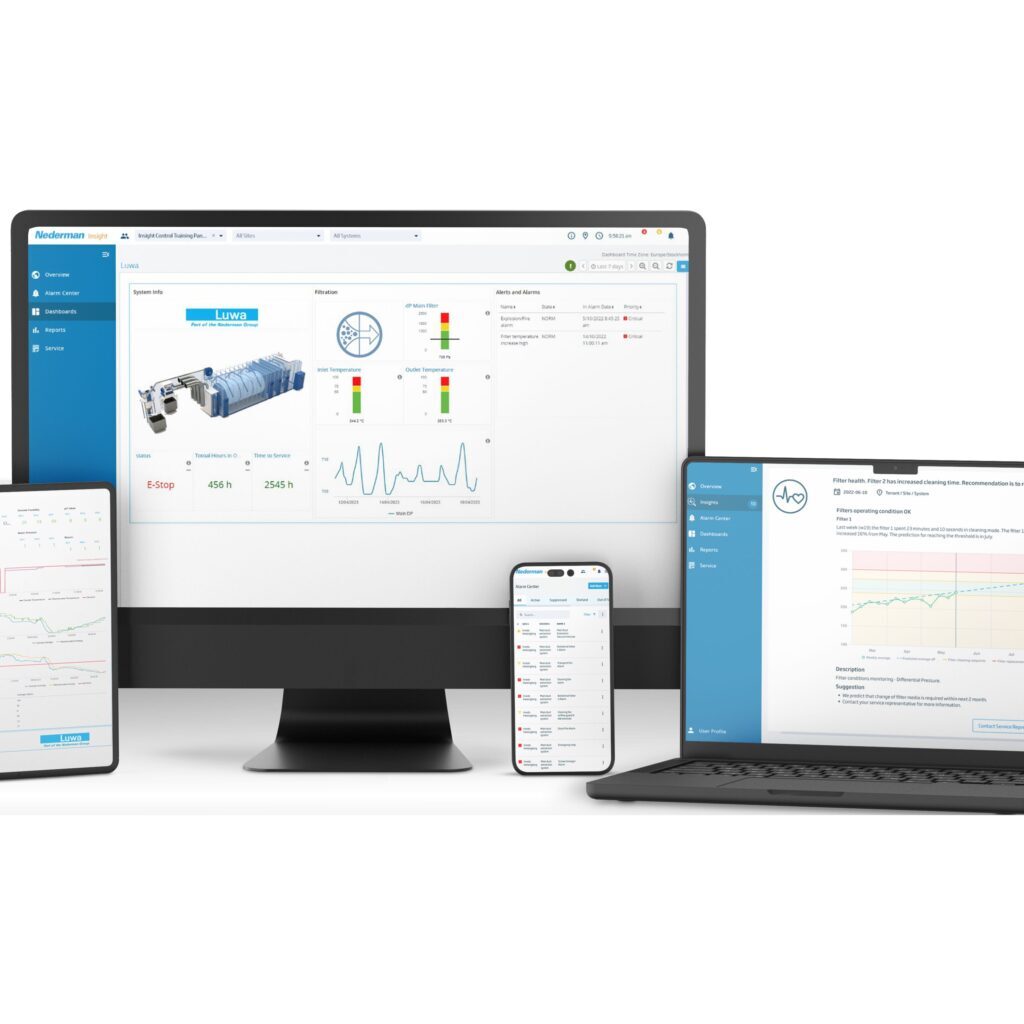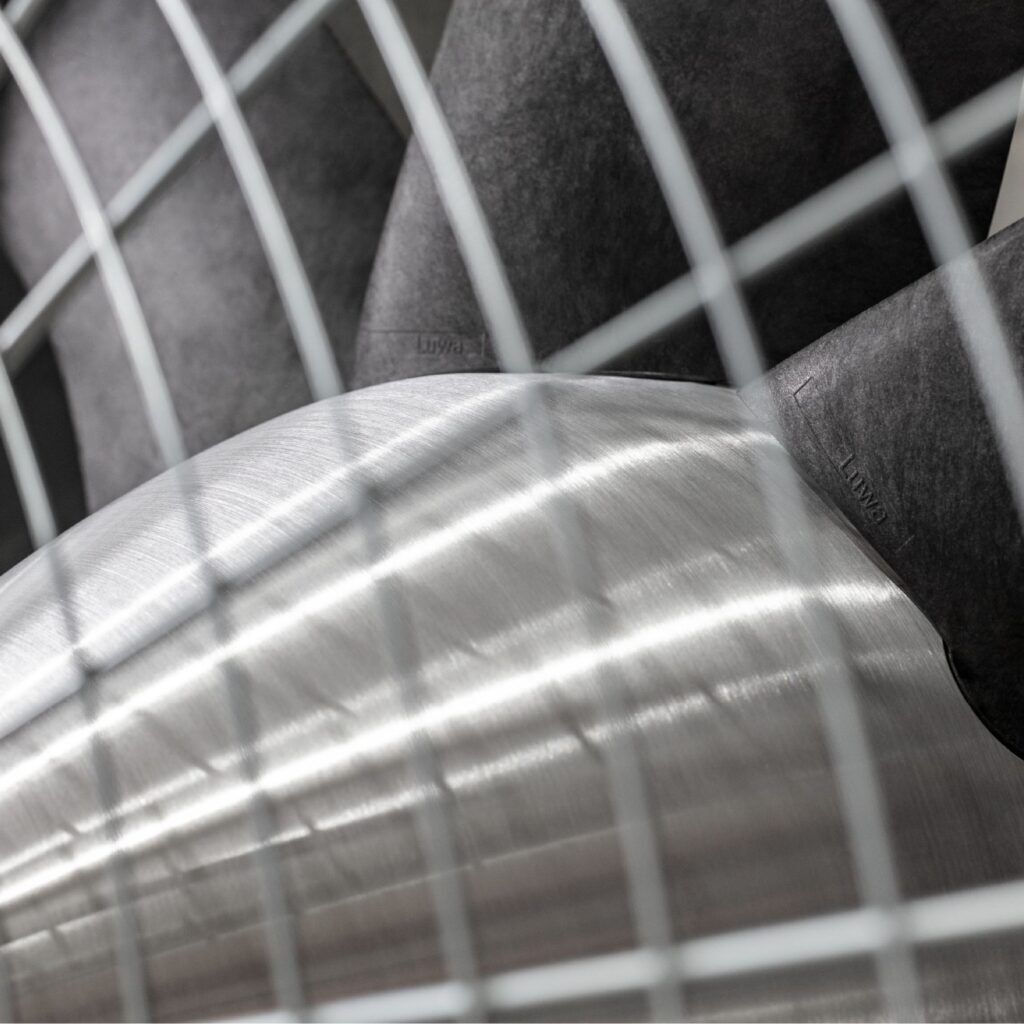In 1935, in the industrial heart of Zürich, Switzerland, Luwa began its journey as a pioneering manufacturer of industrial air-conditioning and filtration systems. Ninety years later, the company stands tall as a global leader in air engineering solutions for textiles and nonwovens, renowned for its commitment to precision, innovation, and sustainability. Today, as part of the Nederman Group, Luwa continues to redefine standards for air management, enabling textile manufacturers to operate with unmatched efficiency and environmental responsibility.

Process Technology and P. K. Singh – Managing Director, Luwa India
Marking 90 years of excellence, Luwa reflects on a journey defined by innovation, global expansion, and deep customer partnerships. To commemorate this milestone, three of its key leaders Mr. Ulf Mattisson, CEO of the Luwa Group, Mr. Tomas Hagstrom, SVP and Head of Nederman Process Technology and Mr. P. K. Singh, Managing Director of Luwa India, share their perspectives on the company’s remarkable evolution, its worldwide footprint, and the pivotal role India plays as a hub of growth and innovation in the global textile landscape.”
Sharing excerpts from the interview..
Tomas Hagstrom – SVP, Head of Nederman Process Technology
Luwa is known for being a complete solution provider to the textile industry. Could you elaborate on the core products and services you offer across different textile processes—spinning, weaving, knitting, and nonwovens?

Luwa provides a complete ecosystem of air engineering solutions, tailored to every stage of textile production. In spinning, precise humidity and temperature control as well as filtration and waste removal secure consistent yarn quality. In weaving, our LoomSphere system stabilizes conditions directly at the loom, reducing fluff and increasing fabric yield. For nonwovens, advanced filtration as well as humidity and temperature regulation ensure uniform production quality. At the center is DigiControl 7, our intelligent platform that integrates all systems, giving operators full transparency, control, and reliability. With Luwa, mills don’t just run — they perform at their best.
With textile manufacturers increasingly adopting Industry 4.0 practices, how is Luwa supporting the industry’s digital transformation through products like DigiControl 7, Luwa Insight, and Luwa Assist?
As digitalization reshapes textile manufacturing, Luwa is transforming air systems through smart digital platforms. DigiControl 7 offers centralized control with intuitive interfaces and real-time diagnostics, while Luwa Insight enables predictive maintenance and cloud-based monitoring across multiple facilities. Luwa Assist delivers guided support and expert data analysis, ensuring customers receive timely troubleshooting whenever needed. Together, these systems empower mills to operate smarter, respond faster, and optimize continuously. It’s not just about automation—it’s about unlocking operational intelligence and elevating textile manufacturing to a new level of efficiency and resilience.

Sustainability has become central to modern manufacturing. How is Luwa embedding eco-friendly practices into its product design, energy systems, and customer solutions for the textile industry?
Sustainability is an integral part of our DNA, reinforced by being part of the Nederman Group. Our systems are designed to optimize energy efficiency, recover heat efficiently, and reduce emissions, while smart controls ensure mills operate at peak performance. Looking ahead, the focus is on energy-optimized air conditioning and filtration with advanced sensors and intelligent filter monitoring for greater efficiency. These innovations are not just about greener mills—they are essential to keeping textile production both economically competitive and socially accepted worldwide.
Ulf Mattisson – Luwa Group CEO
Luwa recently celebrated 90 years since its inception in 1935. How has the company evolved over the decades, and what do you consider the key milestones that have defined Luwa’s legacy in air engineering?
Luwa’s 90-year journey is a story of vision and perseverance. What began in 1935 as a Zurich-based manufacturer of industrial air-conditioning and automated heating, ventilation and filtering systems has grown into a global leader in air engineering systems for textiles and nonwovens. Each decade has marked a new chapter, from establishing overseas subsidiaries, to innovating energy-efficient air handling and filtration systems, to integrating smart technologies like DigiControl 7. Our sharpened focus on sustainable solutions and connectivity, as well as our strategic alignment with the Nederman Group in 2018, have been pivotal. These milestones reflect a deep-seated commitment to operational excellence, energy efficiency and sustainability, as well as growth. Today, Luwa is not only a trusted partner in air engineering, but also a leader in industry transformation.
From its roots in Zürich to becoming a global player, Luwa has built a strong international presence. Could you tell us more about the company’s global footprint and how it supports customers across various regions?
Luwa has an expansive and agile global presence. With key operations in Europe, Asia and the Americas, we provide regional expertise backed by global know-how to our customers. Our Centres of Excellence in Switzerland, Turkey, India, China, Singapore, and the US enable us to deliver engineered solutions that reflect local market needs without compromising on quality. From installing complete air handling and filtration solutions in a spinning mill in India to coding new control algorithms for a customer in Switzerland and commissioning non-woven lines in the United States, our decentralised yet unified team delivers responsive service and consistent solutions that safeguard product quality, protect worker health and advance a cleaner planet, thus fulfilling the Luwa promise of precise conditions, greater efficiency and purer air worldwide.
As a global technology leader, how does Luwa approach R&D and innovation? Are there any upcoming technologies or developments in the pipeline that you’re excited about?
Being part of the Nederman Group with a world leading air filtration innovation center and 19 Innovation hubs around the world gives us a wide range of possibilities. For Nederman Group and Luwa, innovation means advancing technologies that deliver measurable benefits for our customers. Our development focus is on energy-efficient air-conditioning and filtration systems with advanced control and sensor technology, enabling precise and efficient operation. We also continuously enhance our Axial Flow Fans—the main power consumers in an air-conditioning system in textile mills—to maximize energy efficiency and reduce operating costs. These efforts reflect our commitment to creating future-ready air-engineering solutions that combine performance, sustainability, and operational reliability.
P. K. Singh – Managing Director, Luwa India
India has emerged as a major hub for Luwa. What role does the Indian market play in Luwa’s global operations, and how has your state-of-the-art manufacturing facility in Bangalore contributed to this growth?
India is a cornerstone of Luwa’s global strategy—not just as a market, but as a hub for manufacturing excellence. Our Bangalore facility features advanced CNC technology, state-of-the-art assembly lines, and digital testing capabilities, enabling the delivery of high-performance systems tailored to customers across various regions in India. By combining global quality standards with local agility, the facility allows us to stay close to customers and co-create solutions that are performance-driven, and ready for the future.
Energy efficiency is a critical need for textile mills. Luwa’s axial flow fans with carbon fiber blades are an impressive innovation in this space. How have these energy-saving solutions been received by your customers?
The response has been outstanding. Our Axial Flow Fans with Carbon Fiber Blades tackle one of the textile industry’s biggest challenges—high energy costs—by reducing consumption by up to 10% or more in some cases, without sacrificing airflow or durability. Mills report faster payback periods, improved air distribution, and significantly lower motor loads. The Axial Flow Fan with Carbon Fiber Blades is proving to be a breakthrough in operational efficiency and sustainability—clear evidence that smart engineering delivers measurable bottom-line results.
Could you share some customer feedback or case studies where Luwa’s integrated solutions have significantly improved efficiency, reduced operational costs, or driven sustainability?
A standout case is our work with a leading textile unit based in Silvassa. We retrofitted the systems with high-efficiency axial impellers and our energy-saving ESS solution. The results speak volumes: annual savings of over 500,000 kWh and ₹30 lakh in energy costs—with a payback in under three years. This isn’t just an isolated success; we have many such examples where our solutions enhance process and energy efficiency, and improve air quality. It reinforces our belief that the best technology doesn’t just meet specs—it creates measurable, lasting value.
Looking ahead, what are Luwa’s strategic plans for investment, expansion, and innovation—particularly in the Indian market, and how do you see the company evolving over the next decade?
Our vision is to uphold and advance Luwa’s legacy as the global benchmark in textile and nonwoven air engineering. Luwa India will be playing a pivotal role in this journey. We are deepening our focus to tackle evolving textile challenges across regions, developing next-generation solutions that enhance efficiency, sustainability, and reliability. Alongside this, we are expanding manufacturing capacities and advancing digital solutions platforms. Over the next decade, Luwa will help shape the future of sustainable manufacturing across the global textile industry.




